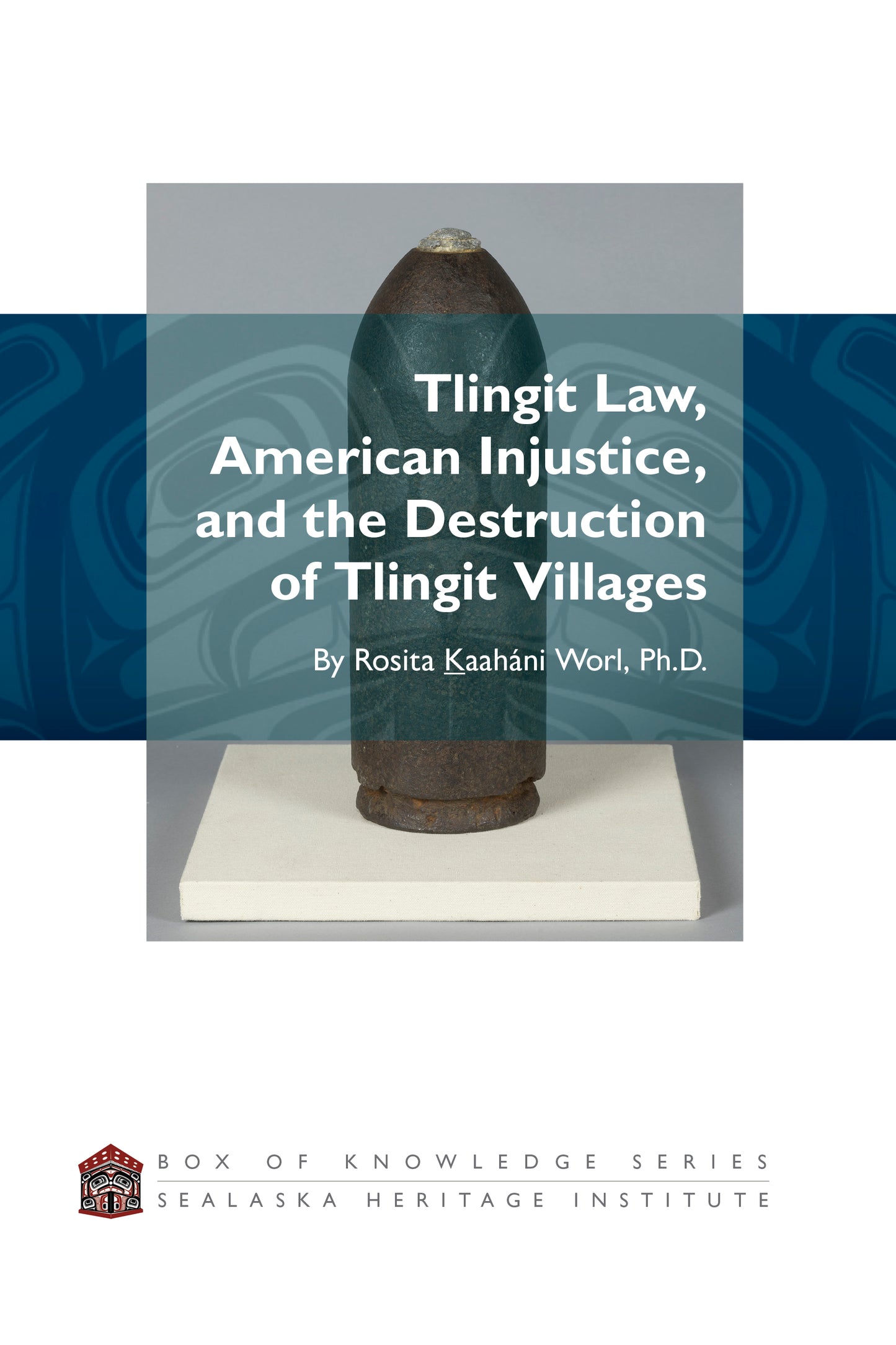“Tlingit Law, American Injustice, and the Destruction of Tlingit Villages"
“Tlingit Law, American Injustice, and the Destruction of Tlingit Villages"
In this Box of Knowledge Booklet essay, Sealaska Heritage President Dr. Rosita Worl explores Tlingit and Western laws, focusing on the bombardments of the Tlingit villages of Kake, Angoon, and Wrangell.
The Tlingit had a highly developed system of law. Tlingit law is based on a group orientation, rather than the individualistic system in American law. The entire clan is responsible for any wrong-doing committed by any individual clan member. When laws were broken, and if conflicts were not resolved to restore peace, the consequence would be violence as clans protected their claims to property and demanded compensation for insults, injuries or worse. The death of a clan member, purposeful or accidental, required the offending clan to offer the life of an individual of equal status, or payment in goods in an amount acceptable to the injured clan. If the death was caused by a non-Native, the clan would seek a payment of restitution and in some cases would take the life of a non-Native as compensation. Such actions were considered legal under Tlingit law. Bombardments of the Tlingit villages of Kake, Angoon, and Wrangell resulted from such differences in legal systems.
Dr. Worl, whose Tlingit names are Yeidiklasókw and Kaaháni, is Tlingit, Ch’áak’ (Eagle) moiety of the Shangukeidí (Thunderbird) Clan from the Kawdliyaayi Hít (House Lowered From the Sun) in Klukwan. She is an anthropologist and for many years served as Assistant Professor of Anthropology at the University of Alaska Southeast. Yeidiklatsókw has a Ph.D. and a M.S. in Anthropology from Harvard University, and a B.A. from Alaska Methodist University. She also holds an honorary doctor of sciences degree from the University of Alaska Anchorage. Dr. Worl has received many honors and works with several different Native organizations. She is an accomplished lecturer and author.
Couldn't load pickup availability

